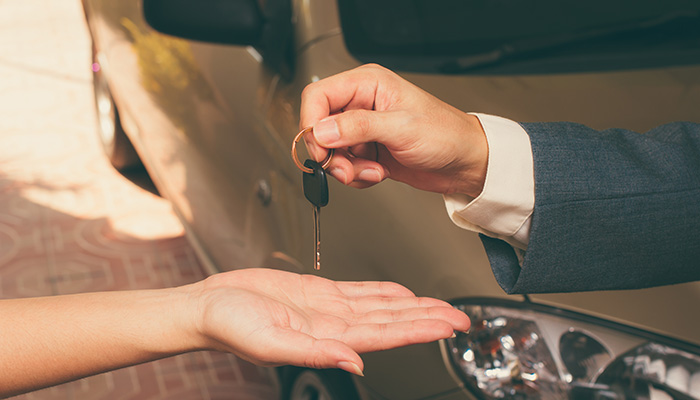Provided under the Bankruptcy and Insolvency Act, Bankruptcy law aims to balance your need for a financial fresh start with your creditors’ right to recover a portion of the money they’re owed. The rules around what you may keep, earn or acquire while you are bankrupt attempt to balance these objectives.
Purchasing a new vehicle provides a great example of how these rules apply in a variety of scenarios. The short answer is yes, you can certainly purchase a vehicle while you are bankrupt — but it could cost you.
What is after acquired property?
Every province also has certain exemptions which determine what you may keep in a Bankruptcy. These include necessary possessions for you to maintain a reasonable standard of living such as your home, furniture, clothing, retirement savings, primary vehicle, etc.
When you file for Bankruptcy, you not only agree to relinquish your current assets — but also any windfalls, income or assets over and above your exemption limit that come into your possession while you are bankrupt. This latter category is considered after acquired property and must be surrendered to the Licensed Insolvency Trustee for the benefit of your creditors.
Is my new vehicle after acquired property?
To start, here are the questions you need to answer that affect whether your new vehicle purchase will be considered after-acquired property in Bankruptcy. If it is, you must give up the asset or pay to keep your equity you acquired:
- Did I own a vehicle on my date of Bankruptcy?
- How much equity did I have any equity in the vehicle on the date of Bankruptcy (the value of vehicle less the amount outstanding on a loan for which the vehicle is the collateral)?
- Did I claim the equity in the vehicle exempt under my provincial law (in BC, it’s the Court Order Enforcement Act)?
- How much equity did I claim exempt?
- If I was eligible to claim the equity exempt, but I didn’t, have I claimed it now?
Here are some examples to show you if the vehicle you’re purchasing would be considered after-acquired property:
No After-Acquired Property:
You can buy a vehicle with no additional cost in your Bankruptcy
Scenario 1:
When I filed Bankruptcy, I owned a vehicle free and clear, and it was worth $5,000. I claimed my $5,000 equity in the vehicle 'exempt' from seizure. I sold the vehicle for $4,000. I want to buy a $4,000 car
|
You can buy the car and you do not have to pay anything extra into your Bankruptcy. The sale proceeds came from your exempt vehicle, and you are transferring the exempt equity into another vehicle. |
Scenario 2:
When I filed Bankruptcy, I owned a vehicle free and clear and it was worth $5,000. I claimed my $5,000 equity in the vehicle 'exempt' from seizure. I sold the vehicle for $4,000. I want to buy a $3,500 car.
|
You can buy the car an and you do not have to pay anything extra into your Bankruptcy. The sale proceeds came from your exempt vehicle and you are transferring the exempt equity into another vehicle.
You can keep the $500 remaining from the sale proceeds.
|
Scenario 3:
When I filed Bankruptcy, I owned a vehicle free and clear and it was worth $5,000. I claimed my $5,000 equity in the vehicle 'exempt' from seizure. I sold the vehicle for $4,000. I want to buy a $5,000 car.
The bank is going to lend me $1,000 to make up the difference, and they are registering a lien on the car as security on my loan.
|
If you buy the car, you do not have to pay anything extra into your Bankruptcy. The sale proceeds came from your exempt vehicle and you are transferring the exempt equity into another vehicle.
You still don't have any equity in the vehicle as the lien gives the bank the right to the $1,000 equity in the new vehicle.
|
Scenario 4:
When I filed Bankruptcy, I owned a vehicle free and clear and it was worth $5,000. I claimed my $5,000 equity in the vehicle 'exempt' from seizure. I sold the vehicle for $4,000 and I spent the funds on living expenses over the last 6 months.
The bank is going to lend me $5,000 to purchase the new vehicle and they are registering a lien on the car as security on my loan.
|
If you buy the car you do not have to pay anything extra into your Bankruptcy.
You still don't have any equity in the vehicle as the lien gives the bank the right to the $5,000 equity in the new vehicle.
|
After-Acquired Property:
If you buy a vehicle there is an additional cost in your Bankruptcy
Scenario 5:
When I filed Bankruptcy, I owned a vehicle free and clear and it was worth $5,000. I claimed my $5,000 equity in the vehicle 'exempt' from seizure. I sold the vehicle for $4,000 and I want to buy a $5,000 car.
I've saved up $1,000 since filing Bankruptcy to afford the difference.
|
This situation creates after-acquired property. The $1,000 you saved is from your protected portion of your income. But if you convert the cash into equity in a vehicle, the law reads you are creating additional equity in a vehicle above the exempt amount.
Why? The equity in the older vehicle has decreased to $4,000. You can still protect all the equity from the old vehicle, but the difference between the remaining equity ($4,000) and the value of the new car ($5,000) did not come from the equity in your old car.
If you buy the vehicle, you will have to pay an additional $1,000 into your Bankruptcy. If you don't make the payment, the trustee may have to seize and sell your vehicle to collect the $1,000. You would receive your $4,000 exempt equity from the sale proceeds.
|
|
Scenario 6:
When I filed Bankruptcy, I owned a vehicle worth $5,000 and I still owed $6,000 on the vehicle loan. I claimed my $5,000 equity in the vehicle 'exempt' from seizure. I still have the vehicle and I want to keep it, but I want to buy another vehicle for $2,000.
I've saved up $2,000 since filing Bankruptcy to afford the difference
|
Again, this situation creates after-acquired property. Even though you didn't have equity in the vehicle on the date of Bankruptcy (the amount of the loan was greater than the value of the vehicle), the funds to purchase the new vehicle did not come from the sale proceeds of the exempt vehicle.
If you buy the vehicle, you will have to pay an additional $2,000 into your Bankruptcy. If you don't make the payment, the trustee may have to seize and sell your vehicle to collect the $2,000.
|
A Licensed Insolvency Trustee can help
There are many more situations in which you may or may not have to pay extra into your Bankruptcy to purchase a vehicle. The best thing to do is to check with your trustee before making any decisions.
If you’re struggling with problem debt but worry about the challenges of buying or keeping a vehicle— contact MNP for a Free Confidential Consultation today. We will look at your entire financial situation and present a range of solutions that might work for you. If a Bankruptcy will not work, we can look at a Consumer Proposal or other options that will allow you to address your transportation needs without incurring any unnecessary costs.



